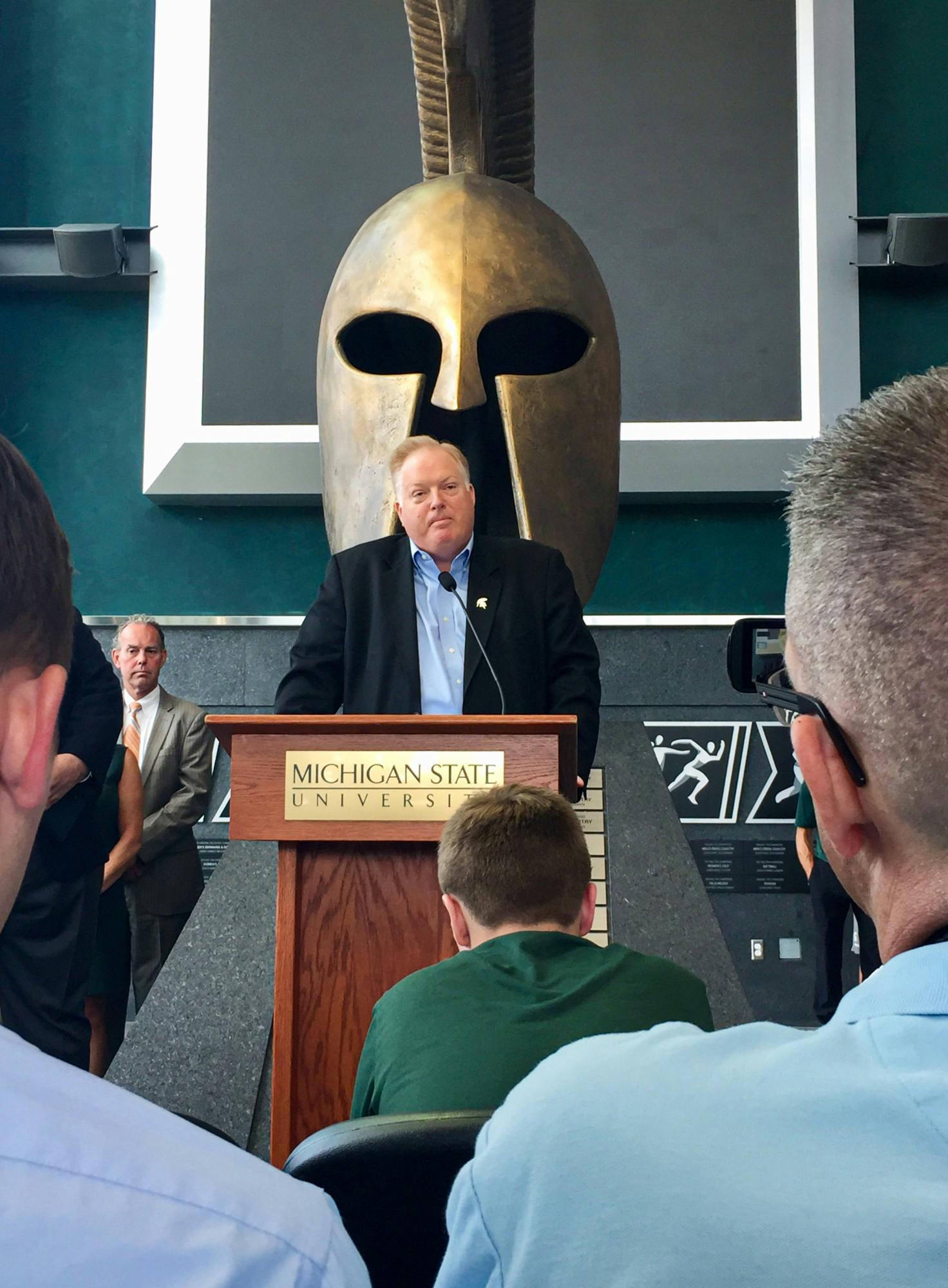Well, it finally happened.
The Big Ten had been in the spotlight ever since they decided to postpone fall sports back on Aug. 11. They faced backlash from players, coaches, fans and politicians alike. The presidents of the institutions had voted 11-3 in favor of holding off on athletics in the fall, but it was reported Wednesday morning that bringing college football back in 2020 was now a unanimous yes.
Michigan State President Samuel L. Stanley Jr., who originally voted against the college football season, voiced a newfound approval amid the availbility of rapid testing.
“I support this decision to allow a modified fall football season," Stanley said in a release. "With all that we’ve learned in the past month about rapid response testing, and from other athletic leagues both professional and collegiate, I feel more confident that we can collectively play football while still keeping our student athletes, coaches and staff safe. MSU will adhere to the regulations put forth by the Big Ten Conference to move forward in a safe and thoughtful manner.”
So, what changed? For starters, rapid, daily testing seemed to be the key that unlocked the door for starting up the fall season. Along with testing, there are other strict medical guidelines that were put in place. It also probably helped that college football in other conferences has been played for the past two weeks around the country without any glaring issues.
During a press conference on the Big Ten Network Wednesday morning, it was announced that tickets will not be sold to the general public and that access to the games will pretty much just be limited to family members.
Here's the breakdown of all the medical protocols that proved to be enough for the presidents to feel comfortable with giving life to a college football season, set to begin the weekend of Oct. 23-24.
-Student-athletes, coaches, trainers and anyone on the field for practices or games will be required to undergo daily antigen testing.
-Each school will designate a Chief Infection Officer who will oversee testing, including the collection and reporting of results.
-Team and population test positivity rate will be used to guide recommendations for continuing on with with practice/gameplay. The "red" zone for team positivity rate is >5%, while it is set at >7.5% for population.
-Any student-athlete who tests positive for COVID-19 will undergo comprehensive cardiac testing. Following testing, players will have to receive clearance from a cardiologist designated by the university.
-Student-athletes will have to wait at least 21 days following a positive COVID-19 test before returning to gameplay.
-All 14 Big Ten schools will have a cardiac registry put in place in order to more closely examine the effects of the coronavirus on those who test positive.
-Teams will only halt practice or competition if they enter the "red" zone in both team and population test positivity rate.
-Daily testing will begin by Sept. 30.
Dr. Jim Borchers, Head Team Physician at Ohio State, described the steps being taken to protect the health and safety of student-athletes as "groundbreaking."
“The data we are going to collect from testing and the cardiac registry will provide major contributions for all 14 Big Ten institutions as they study COVID-19 and attempt to mitigate the spread of the disease among wider communities," Borchers said, according to the official release from the Big Ten.
As for the other fall sports besides football, Warren said during the press conference that it will be discussed tomorrow among the leaders of the conference.
Michigan State Athletic Director Bill Beekman said in his statement that he was "grateful" that the decision was revisited given the updated information.
“I know Coach Mel Tucker is eager to begin his first season as Michigan State’s football coach, and I’ve been extremely impressed by the way he’s kept our guys motivated throughout the summer and fall, even when the season was postponed," Beekman said. "And most importantly, I must reiterate how happy I am for our student-athletes. They always work hard, but this year has been an offseason like none other, and still they’ve persevered and never lost their focus. While football games will definitely look different this fall, I know I will still have immense pride as I watch the Spartans run through the tunnel at Spartan Stadium."
Support student media!
Please consider donating to The State News and help fund the future of journalism.
First-year Michigan State head football coach Mel Tucker released a statement Wednesday afternoon.
“From daily antigen testing for all of our players, coaches and staff to extensive cardiac protocols and protection, the Big Ten Conference and Michigan State are leading the charge to put our players on the field safely and competitively," Tucker said. “Our players have been relentlessly training in our strength and conditioning program and we will be ready to compete. Thank you to all our Spartan fans for your support and the Big Ten Task Force and the medical leaders who got us here today."
Editor's note: This story was updated to include a statement from MSU head football coach Mel Tucker.
Discussion
Share and discuss “What went into the decision to bring back Big Ten football in 2020” on social media.







